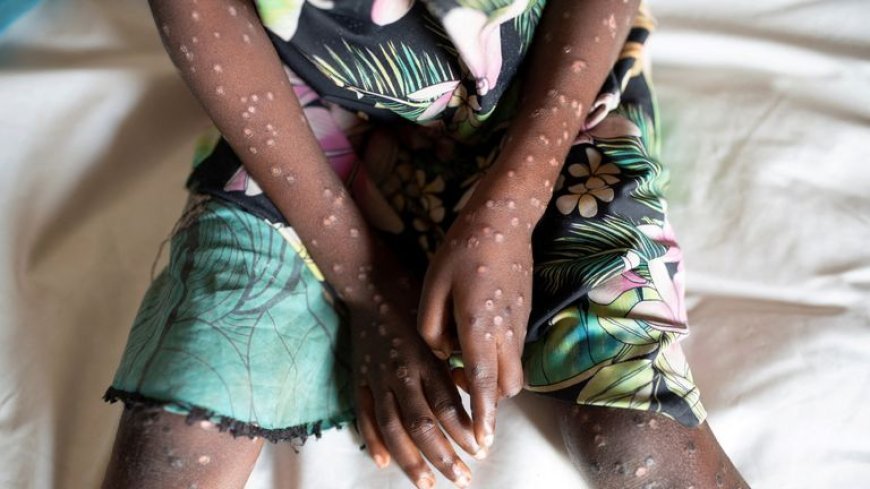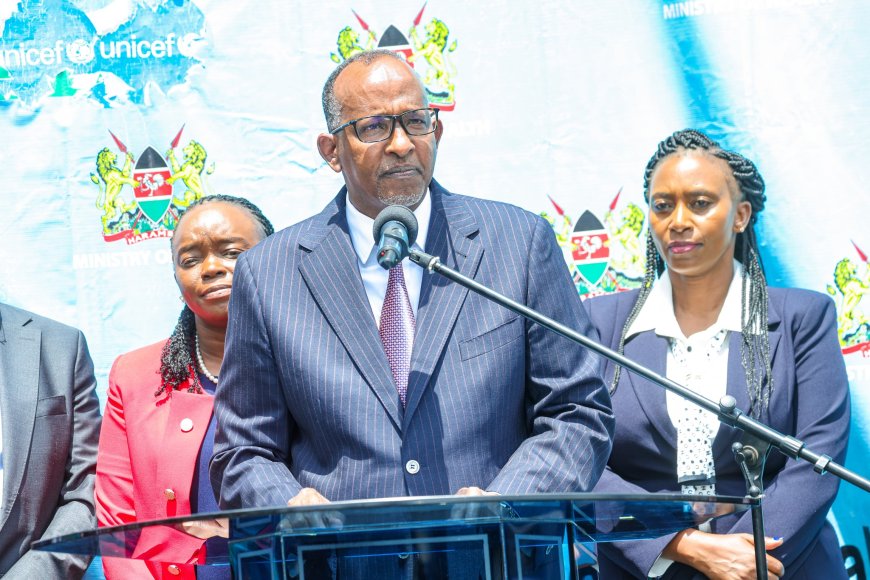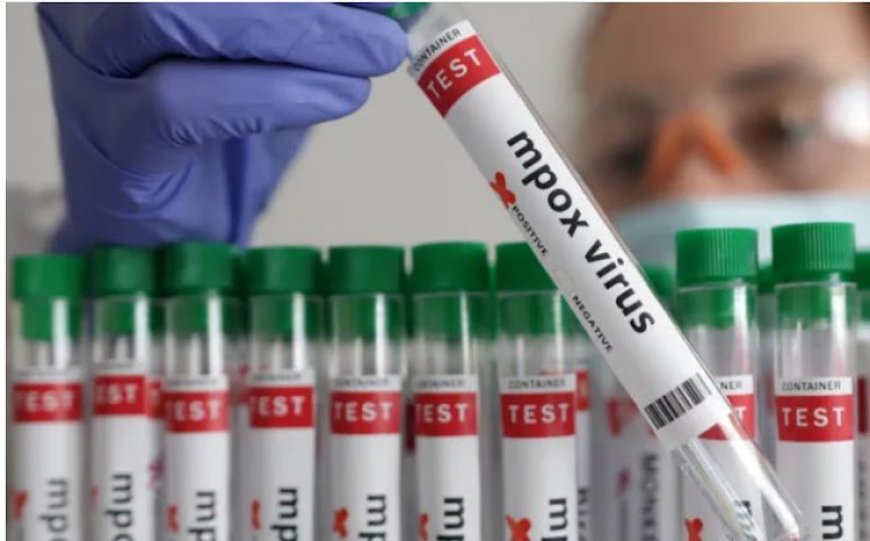Ministry Of Health Speaks On Mpox Outbreak Affecting 17 Counties
Mpox, formerly called monkeypox, is a viral disease related to smallpox. It spreads through close contact with infected people, animals, or contaminated items.

The Ministry of Health has raised the alarm that Mpox has spread to four additional counties in the past two months.
Mpox, formerly called monkeypox, is a viral disease related to smallpox. It spreads through close contact with infected people, animals, or contaminated items.
People infected with the virus show symptoms like skin rashes or sores on mucous membranes, fever, headaches, body aches, and swollen lymph nodes.
In a statement on Tuesday, June 10, Public Health Principal Secretary Mary Muthoni announced that the virus has recently reached Isiolo, Kisii, and Kirinyaga—each reporting one case—while Machakos has confirmed two.

Health Cabinet Secretary Aden Duale (second right) addressing the press outside MOH headquarters in Nairobi on April 1, 2025, as former CS Deborah Barasa (in red) and other officials watch on. /ADEN DUALE
"The Ministry of Health remains committed to controlling the Mpox virus outbreak and protecting the health and safety of all Kenyans. We appreciate the continued efforts by the public in helping us combat this outbreak and safeguarding the well-being of our republic," the statement read in part.
So far, and cumulatively, 137 Mpox cases have been confirmed across seventeen (17) counties as follows: Busia (48), Mombasa (37), Nakuru (16), Makueni (10), Nairobi (5), Kajiado (3), Bungoma (3), Taita Taveta (2), Kericho (2), Kilifi (2), Kiambu (1), Uasin Gishu (1) Migori (1), Machakos (2), Isiolo (1), Kisii (1) and Kirinyaga (1).
A total of 400 contacts have been identified, and 315 have been monitored for the recommended period of 21 days. Of those, nine (15) contacts tested positive for Mpox.
"Additionally, over 4.8 million travellers have been screened at the Points of Entry, and suspected cases are identified for further investigation. Suspected Mpox samples are tested at the National Public Health Laboratory (NPHL) and partner laboratories. 597 samples have undergone testing of which 137 have tested positive," added the statement.
To accelerate the response to the outbreak in affected counties, the Ministry, in collaboration with the County Governments and partners, has announced strengthened surveillance through active case search, contact listing, tracing, investigation, and symptomatic management of confirmed cases.
Further, the Aden Duale-led ministry has embarked on enhanced public awareness through the dissemination of 15 million SMSs to raise community awareness on Mpox.
"Additionally, members of the public can access mpox prevention and control messages by calling 719 or by dialling *719# FREE OF CHARGE," added the statement.
"Further information on Mpox can also be obtained from qualified health care workers or the Ministry's website www.health.go.ke or by contacting the hotlines on 0729 47 14 14 or 0732 35 35 35."
The ministry’s announcement follows a recent warning from WHO Director-General Tedros Adhanom, who emphasised that Mpox is still considered a public health emergency of international concern (PHEIC).
Since the start of 2024, over 37,000 confirmed Mpox cases and 125 deaths have been reported across 25 countries worldwide.
"WHO continues to work in all affected countries, with the Africa CDC and other partners, under our shared continental response plan. Together, we have expanded surveillance systems significantly; We have supported the development of laboratory capacity and genomic sequencing," he said on June 5.
Two months ago, Health Cabinet Secretary Aden Duale announced that the country had received 10,700 doses of the Modified Vaccinia Ankara-Bavarian Nordic (MVA-BN) vaccine to help contain the Mpox outbreak.
Duale clarified that the vaccines wouldn’t be for the general public but would be directed toward high-risk groups in the 13 counties hit hardest by the disease.
These high-risk groups include people who’ve had close physical contact with confirmed Mpox cases, long-distance truck drivers, sex workers, and frontline healthcare workers treating infected patients.
The ministry also reminded Kenyans to stick to preventive measures—like avoiding close contact with infected individuals, maintaining good hygiene, limiting sexual partners, and promptly reporting suspected cases to health authorities—to help stop the spread.







